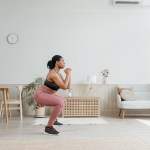The omnipresence of sleep problems in our always-on world has led many to overlook simple interventions in favor of more complex solutions. Among the simplest yet profoundly effective of these are sleep masks—a tool often disregarded or associated solely with daytime sleepers.
Recent scientific investigations, however, illuminate the profound impact of sleep masks on the quality of sleep and cognitive functions such as memory and alertness. This article delves into these findings, offering a fresh perspective on a sleep aid as old as night itself, supported by contemporary scientific studies.
The Studies on Sleep Masks
Researchers from the United States, Italy, and England wanted to see how this simple device, when used to block ambient light during sleep, could influence cognitive functions crucial to daily activities such as driving and studying. Their hypothesis stemmed from an understanding that uninterrupted darkness could play a pivotal role in enhancing sleep’s restorative qualities, potentially leading to significant improvements in memory retention and alertness.
Methodology and Participants The investigation unfolded through two meticulously designed studies. The first, spanning the summers of 2018 and 2019, engaged 89 adults aged between 18 and 35. This period was selected for its extended daylight hours, presuming that sleep masks would demonstrate heightened efficacy. Participants were divided into groups; one wore sleep masks for a week while another slept without them, introducing a control setup to assess the masks’ true impact. A third group used masks with holes to ascertain if discomfort influenced sleep quality or cognitive outcomes.
In a subsequent study during the summer of 2020, 33 adults underwent a similar experiment, this time with enhanced monitoring that included brain activity measurements to gain deeper insights into the physiological impacts of sleep mask usage.
Findings Participants wearing sleep masks showed marked improvements in Psychomotor Vigilance Tests (PVTs), reflecting enhanced alertness, and excelled in memory-related tasks.
This boost in performance intriguingly did not correlate directly with subjective sleep quality assessments or reported comfort levels. Instead, researchers postulate the key to these benefits lies in the masks’ ability to prolong slow-wave activity (SWA) during sleep. SWA phases are critical for cognitive restoration, suggesting that sleep masks might facilitate a more profound, if not subjectively noticeable, enhancement of sleep’s restorative functions.
The Science of Sleep Quality and SWA Sleep quality is a multifaceted aspect of health, intricately linked to our cognitive functioning and overall well-being. Central to this is slow-wave activity (SWA), a phase of deep sleep associated with memory consolidation, cognitive restoration, and the rejuvenation of learning capacities. SWA represents a period when the brain effectively “cleans house,” reducing synaptic strength to save energy and space for new information. This process is crucial for memory retention and learning new skills.
Light pollution, emanating from both external sources and electronic devices, is a significant disruptor of sleep quality, particularly affecting the duration and intensity of SWA. Light in the modern bedroom may undermine the brain’s ability to enter and maintain this essential phase of sleep. By creating artificial darkness, sleep masks can mitigate these effects, serving as a simple yet powerful tool to enhance sleep quality by safeguarding the SWA phase.
The implications of these findings are far-reaching, suggesting that wearing a sleep mask can directly contribute to improved performance in daily activities requiring alertness and rapid response, such as driving and sports. However, it’s important to note that sleep masks may offer limited benefits for individuals with chronic sleep issues.
Broadening the Perspective Extending beyond the scope of sleep masks, recent studies have also explored the relationship between physical activity and sleep quality. Notably, a comprehensive study involving over 380,000 participants found that physical activity could mitigate the negative health effects of poor sleep, suggesting a synergistic relationship between exercise and sleep quality in promoting overall health.
Conclusion The journey to better sleep and enhanced cognitive function may indeed begin with something as simple as a sleep mask. By fostering a darker sleeping environment and promoting deeper sleep phases like SWA, sleep masks stand out as a scientifically backed tool for improving memory and alertness.
Coupled with physical activity, this simple sleep hack can play a pivotal role in enhancing both sleep quality and health outcomes, offering a compelling argument for revisiting the humble sleep mask as part of a holistic approach to well-being.
Not a member of Elevate yet? Try us for FREE!
The post Sleep Masks: A Sleep Hack Backed By Science appeared first on Elevate Fitness.




